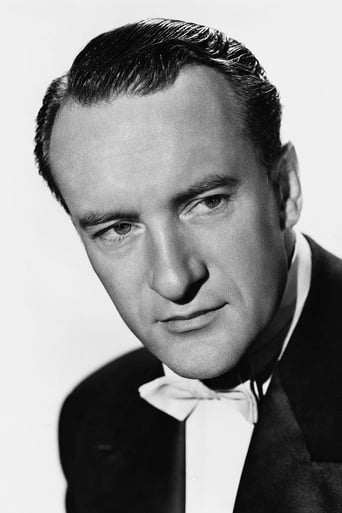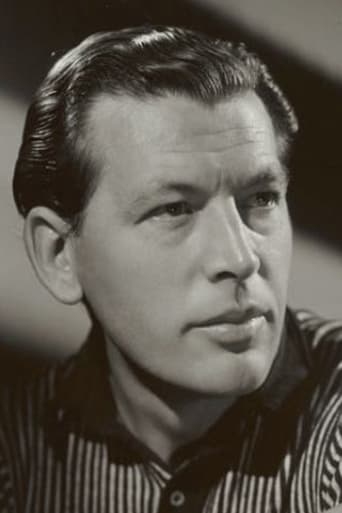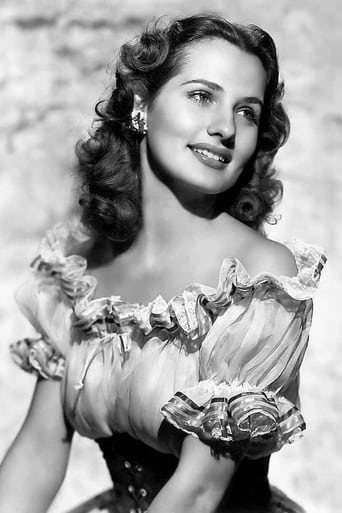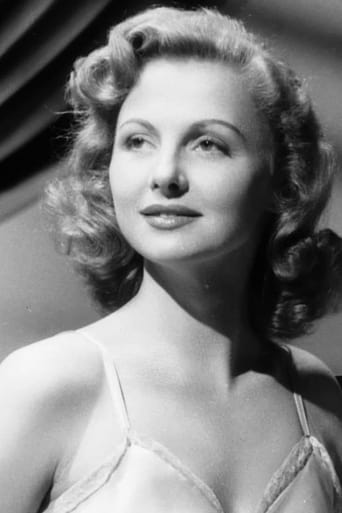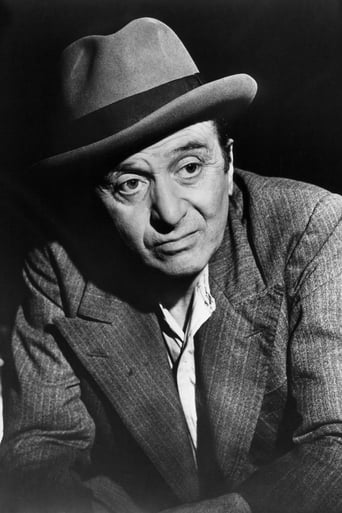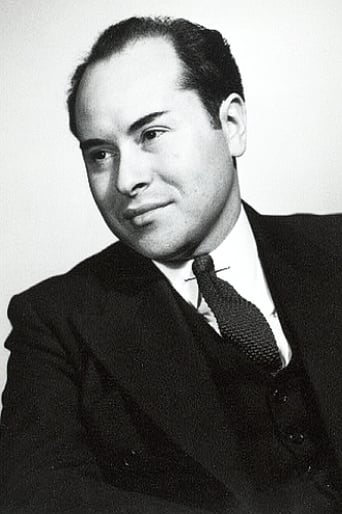Pacionsbo
Absolutely Fantastic
Zandra
The movie turns out to be a little better than the average. Starting from a romantic formula often seen in the cinema, it ends in the most predictable (and somewhat bland) way.
Marva
It is an exhilarating, distressing, funny and profound film, with one of the more memorable film scores in years,
Bob
This is one of the best movies I’ve seen in a very long time. You have to go and see this on the big screen.
gordonl56
Paris After Dark 1943This 20th Century Fox production, is another one of the myriad of mid WW2 films about the French Resistance against the German occupiers. This one stars George Sanders, Brenda Marshall, Philip Dorn, Marcel Dalio and Madeleine LeBeau.George Sanders is a doctor working at a Paris plant that is making tanks for the German Army. He is also the leader of the local French Resistance group. His number 2 is Brenda Marshall, who is also his nurse at the plant hospital. The group mainly just posts leaflets and such calling for sabotage of products and materials for Germany.Philip Dorn, Marshall's husband, returns to the family after several years in a German P.O.W. camp. The Germans have released prisoners that are too sick to work for their cause. Dorn is a broken man, both is body and spirit. He wants nothing to do with the resistance movement etc.The anti-Nazi group work out of a hidden room in the local café. They hold their planning meetings there with the odd get together at the home of Sanders. (The radio to London is hidden there) The local barber, Dalio, is a collaborator in the employ of the Gestapo. He makes a tidy bit of cash reporting on any funny behaviour in the area.The Germans decide they are going to round up 500 able-bodied men and send them to Germany to work. Several of the younger lads, including, Marshall's younger brother, Raymond Roe, decide to head for Spain. They are however rounded up by the Gestapo types on a tip from Dalio.This of course goes nowhere good for young Roe. He is shot by the German officer in charge of the area. The Nazi swine, Robert Lewis, is then shot by Marshall from an upstairs window. Marshall is not seen doing the deed. Lewis is badly wounded and Sanders is forced by the German's to save Lewis. If he fails, the Gestapo will shoot 50 hostages. Marshall is also drafted in to help save the man you had killed her brother.Sanders and Marshall manage to save the Nazi officer's life, thus saving the 50 hostages from death. The Germans however go back on their word, and order the hostages shot unless the person who shot Lewis comes forward.All this has convinced Dorn that he can no longer stay out of the fight. He tells Sanders that he will confess to the attack on Lewis. But he wants Sanders to make sure that he gets his wife, Marshall to safety. Sanders, agrees, and promises to get the woman to England.While not the best of the "resistance" type films, it does keep the viewer entertained. Sanders is always worth watching. Dorn, Miss LeBeau and Dalio had all escaped Europe just ahead of the Nazi's and ended up in Hollywood. Dalio and his ex-wife LeBeau would have parts in the best example of the genre, CASABLANCA.The director, Léonide Moguy was also an escapee from the German invasion of France. His Hollywood films include, WHISTLE STOP and ACTION IN ARABIA (also with George Sanders)
Jay Raskin
N.Y. Times critic,Bosley Crowther calls this "a stilted melodrama which is both graphically and emotionally dull." I found it stirring, uplifting and well done. The movie is romantic entertainment in the style of "Casablanca," with a similar anti-Nazi message. The Humphrey Bogart, Ingrid Bergman, Paul Henreid parts are played by George Sanders, Brenda Marshall and Philip Dorn. George Sanders is especially impressive. It is amazing how he can go so easily from a Nazi ("Man Hunt," 1941)to an anti-Nazi here. Marshall and Dorn are fine. Kid actor,Raymond Roe, stands out in the uncredited part of an heroic teenager named George. Some reviewer on this site complained that Sanders didn't use a French accent, while all the other characters did. I don't think that is a real problem. Obviously, none of the characters would have been speaking English if the film was really taking place in France, but then American audiences would not have been able to understand the picture if they did that. I don't think Sanders adding a French accent would have added any realism to the movie. A movie audience accepts it as a convention that the dialogue is supposed to be taking place in French and that the producers are doing it in English so that the story can be understood by Americans. Accents are really optional and Sanders probably made a good choice not to affect one in a movie with many real French actors.Anyways, the movie moves quickly, delivers a good deal of suspense and has a lot of nice and surprising twists and turns.
Martha Wilcox
George Sanders plays a French doctor without a French accent. He plays Germans well and even speaks in a German accent, but he can't play a French doctor without sounding quintessentially English.The young brother of the French protagonist, Jean, is quite bold and brave standing up for what he believes and speaking out against oppression. To be honest it;s the French characters that make this film work. Sanders merely lends his name to sell the film, but he contributes very little in terms of his performance.I would advise Sanders fans to stay away from this film as it comes nowhere near the quality of 'Manhunt' or 'Tales of Manhattan'.
Danryd80
Set in German-occupied Paris, the plot concerns the day-to-day struggles of the French resistance during WWII, made all the more believable by a cast chosen from among real-life refugees – in other words those who were eye-witnesses to the film's historical backdrop. I suspect that when "Paris After Dark" played in small-town America, the world it unveiled was still rather exotic. Even with full-on U.S involvement after Pearl Harbor, the idea of an underground resistance for most Americans was something shadowy and obscure. New York Times reviewer Bosley Crowther, though not at all impressed, did acknowledge "the terrible tragedy of the French people under Nazi occupation" which the film evoked. However, this is a film that holds its own alongside similar portrayals of the war in Europe, such as Robert Stevenson's "Joan of Paris" and William Wyler's "Mrs. Miniver", the latter in which the inimitable Greer Garson and Walter Pidgeon bolstered the moral imperative of continued U.S. involvement.Fans of "Casablanca" (1942) will recognize the lovely Madeleine LeBeau in a supporting role. According to Wikipedia, LeBeau, along with her husband, Marcel Dalio, escaped from Paris in June, 1940, just ahead of the Nazi advance, eventually finding their way to the U.S. Fans of George Sanders will love his role as a heroic leader of the underground movement. But the stars of the film are Brenda Marshall and Philip Dorn. Some viewers may recall Marshall as the scientist Nora Goodrich in Anthony Mann's "Strange Impersonation" (1946). The Dutch-born Dorn was better known as an actor in Germany but who also moved to the U.S. with the war's outbreak. Director Leonide Moguy sought refuge in the States in a similar manner. He also directed the interesting noir, "Whistle Stop" (1946), with George Raft and Ava Gardner before returning to France. In short, this was a cast and company that appeared to know first-hand what they were portraying during one of the war's bleakest periods.As of this writing, it is available as a Fox Cinema Archives release, and well worth tracking down, if only for the history lesson it movingly portrays.
